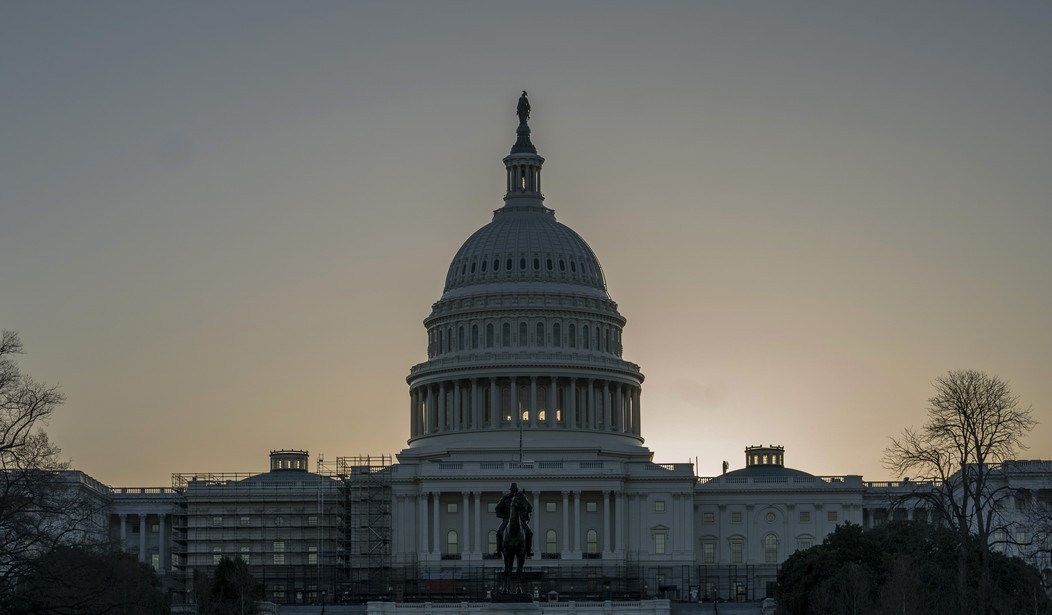The House Appropriations Committee’s sprawling spending bill cleared an early hurdle Wednesday when it was passed along party lines. The bill covers Legislative Branch spending for the upcoming fiscal year. There is something for everyone in it, at taxpayer’s expense, of course, and allocations range from tampons in Capitol Hill restrooms to covering expenses for the unionization of the House of Representatives.
While plenty of distractions take the focus away from what the House is doing while we aren’t looking, they are busy finding ways to include all kinds of pet projects for taxpayers to foot the bill. Feminine hygiene products seem to be a new entitlement that will be extended to Capitol Hill staffers. Ironically, this comes at a time when Biden’s tampon shortage is making headlines. Lawmakers can afford their own products but staffers are not particularly well paid and this will be a much appreciated perk for them. Democrats paint it as an entitlement, because that’s what they do.
“Nobody should ever be forced to put their health in jeopardy and suffer embarrassment and stigmas because they’re unable to afford menstrual products,” said Meng, a New York Democrat.
The current push to appropriate money for period products comes after a few banner years for the topic on the Hill. First, Meng and others urged the House Administration Committee to ensure that lawmakers could use their personal office funds to buy such products from the House’s internal supply store.
Then, the Architect of the Capitol launched a pilot program to distribute free menstrual supplies in House office building bathrooms.
“The work was just completed,” said Architect of the Capitol spokeswoman Christine Leonard, describing the pilot program. “Even if there is a dispenser that previously needed a coin, all machines should now dispense for free.”
It likely won’t be a huge expenditure when the final bill is passed, relatively speaking. But, that’s not the point. What other personal products will taxpayers be expected to pay for next? Shampoo? Shower gel? Women who work in the private sector may or may not have feminine hygiene products in company restrooms. The Architect of the Capitol would purchase the supplies in bulk and distribute them free of charge, according to a proposed directive. That’s not magic money that the Architect of the Capitol will use to make the bulk purchases. It’s taxpayer money and to label them as “free supplies” is to soften the truth. It’s one more thing the taxpayers are taking care of in a wide-sweeping government spending bill.
Other provisions in the bill address working conditions on Capitol Hill. This includes unionization in the House of Representatives. This spring the House voted in favor of allowing lawmakers’ staff to unionize. Union elections will be supervised and certified by the Office of Congressional Workplace Rights. The appropriations committee requests an additional $500,000 to pay for those tasks. Rep. Jaime Herrera Beutler (R-WA), the ranking member of the Legislative Branch Appropriations Subcommittee raised an objection against the additional funding. “I think that unionization of the House of Representatives is really impractical, and I think it could really place a barrier between our constituents and the people who they sent here to serve.”
I agree. Unionization is wrong for staffers. Democrats don’t think so. In May, Democrats passed a resolution to protect staffers from facing retribution if they decided to pursue forming a union in a member’s office or a committee. Staffers received raises about this time, too.
Starting immediately, 30 percent of staffers within an office can file a petition with the executive director of the Office of Congressional Workplace Rights, who would settle any disputes between employees and management — a team that is likely to include the member, chief of staff and staff director. Once issues are resolved, a majority of employees would vote in a secret ballot to officially consider an office unionized.
Staffers could then negotiate salary, promotion policies, paid and sick leave, among other measures. But they are limited on benefits that are established under law, including health-care and retirement benefits.
The bill also includes nearly two dozen recommendations that originated in the House Select Committee on the Modernization of Congress. These recommendations seem practical as they aim to improve how the House works. The problem is whether or not the money will be spent in a practical manner or will it be wasted. They include the House Modernization Initiatives Account which asks for an $8M hike. It funds creating a complete staff directory and a standardized format for legislative documents. And it gives the House clerk’s office $1.4M to overhaul the lobbying disclosure system.
There wa a 21 percent jump in office budgets that members use to pay their staff last year. This year the hikes are more modest in comparison. A 4.6 percent increase is requested. The Modernization Committee recommends an expansion of student loan repayments to include tuition assistance and professional development expenses. Again, many people working in the private sector would love to have these benefits, too, however, those employers don’t have taxpayer money at their disposal to pay for it.
A proposal to raise salaries for interns is included in the bill. And it calls for the creation of a new office (because of course it does) – the House Intern Resource Office. Government never shrinks, it only expands. And that is never good news for taxpayers.
There is a wide range of expenditures in the bill. Spending bills are not particularly fun to follow or entertaining in nature but it’s important to note when bills move through the House Appropriations Committee. It holds the purse strings.









Join the conversation as a VIP Member